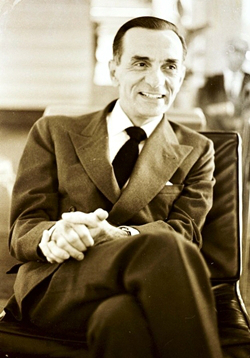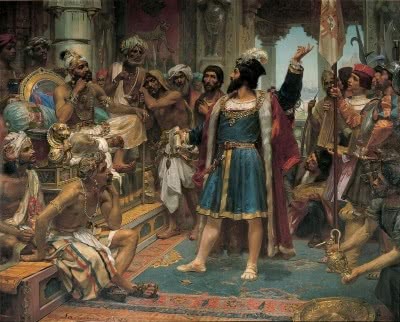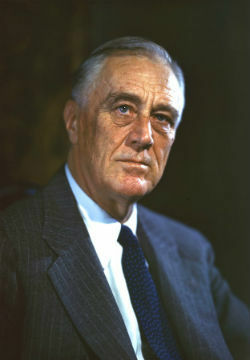João Cabral de Melo Neto was a Brazilian poet, writer and diplomat. Known as the “engineer poet”, he was part of the third modernist generation in Brazil, known as Generation of 45.
At that time, writers were more concerned with word and form, without neglecting poetic sensibility. In a rational and balanced way, João Cabral stood out for his aesthetic rigor.
“Death and Severe Life” was, without a doubt, the work that consecrated him. In addition, his books have been translated into several languages (German, Spanish, English, Italian, French and Dutch) and his work is known in several countries.
Biography

The Pernambuco native João Cabral de Melo Neto was born in Recife on January 6, 1920.
Son of Luís Antônio Cabral de Melo and Carmen Carneiro Leão Cabral de Melo, João was cousin of Manuel Bandeira and Gilberto Freyre.
He spent part of his childhood in the cities of São Lourenço da Mata and Moreno in Pernambuco.
He moved with his family in 1942 to Rio de Janeiro, where he published his first book, “stone of sleep”.
He starts working in the public service in 1945, as an employee of the Dasp (Department of Administration of the Public Service).
In the same year, he applied for the Ministry of Foreign Affairs competition and, in 1946, joined the ranks of Brazilian diplomats.
After passing through several countries, he assumed the post of consul general of the city of Porto, Portugal in 1984.
He remains in the position until 1987, when he returns to live with his family in Rio de Janeiro. He retired from his diplomatic career in 1990. Shortly thereafter, he began to suffer from blindness, which led to depression.
João Cabral died on October 9, 1999, in Rio de Janeiro, aged 79. The writer was the victim of a heart attack.
Brazilian Academy of Letters
Although with an extensive diplomatic agenda, he wrote several works, being elected on August 15, 1968 as a member of the Brazilian Academy of Letters (ABL), received by José Américo. In her inaugural speech, she paid tribute to journalist Assis Chateaubriand.
So, to offset the terse “thank you” and express my appreciation in another way, I want to say that I feel very honored to become one of you. And not only because of what each one of you represents in our intellectual life but because the Academy, which you all, in together, constituís, is one of our institutions in which respect for the freedom of the spirit. Hence (and I don't know how much more praise can be paid to a body of writers, men for whom freedom of spirit is a condition of existence) my commitment to declare that, joining the Academy, I have no sense of giving up any of the things that are important to me as writer.
In fact, I come to be the companion of writers who have represented, or represent, what is most experimental in formal research, at the level of texture and structure of style; other writers whose work is a permanent, and renewed, denunciation of social conditions that accommodated spirits would find it more convenient to overlook; writers who, in the most diverse moments of our political history, have fought against the most diverse political situations; writers who, already academics, have freely judged the Academy, patrons of its Chairs and members of its Chairs. And all this without the Academy having sought to exercise any censorship and without the position of academics having led these writers to any self-censorship." (Excerpt from the Inaugural Address, 6 May 1969)
Construction
João Cabral wrote several works and according to him “writing is being on the edge of oneself”:
- Considerations on the sleeping poet, 1941;
- Sleeping Stone, 1942;
- The Engineer, 1945;
- The Featherless Dog, 1950;
- The River, 1954;
- Quaderna, 1960;
- Chosen Poems, 1963;
- Education through Stone, 1966;
- Death and Severe Life and Other Poems Aloud, 1966;
- Museum of Everything, 1975;
- The School of Knives, 1980;
- Agreste, 1985;
- The friar's report, 1986;
- Crime on Calle Rapporteur, 1987;
- Sevilla walking, 1989.
Awards
Due to his literary work, the writer received several honors and awards:
- José de Anchieta Prize, for poetry, of the IV Centenary of São Paulo;
- Olavo Bilac Award, granted by the Brazilian Academy of Letters;
- Poetry Prize from the National Book Institute;
- Jabuti Award, from the Brazilian Book Chamber;
- Nestlé Biennial Award, for the body of his work;
- Award from the Brazilian Union of Writers, for the book "Crime on Calle Rapporteur" (1988).
Death and Severe Life

Cover of the first edition of Morte e Vida Severina
With strong social criticism, Death and Severe Life is a dramatic poem that was published in 1955.
In it, the writer portrays the saga of a northeastern migrant who leaves the hinterland towards the Southeast of Brazil to seek better living conditions.
The work was adapted for music, theater and cinema.
Excerpt from the poem Death and Severine Life
— My name is Severino,
as I don't have another sink.
As there are many Severinos,
who is a pilgrimage saint,
then they called me
Severinus of Mary;
as there are many Severinos
with mothers named Maria,
I was Maria's
of the late Zechariah.
But this still says little:
there are many in the parish,
because of a colonel
who was called Zechariah
and which was the oldest
lord of this allotment.
How then can I say who I'm talking to
Pray to Your Ladies?
Let's see: it's Severino
from Maria do Zacarias,
from Serra da Costa,
limits of Paraíba.
But that still says little:
if at least five more there were
with Severino's name
children of so many Marys
women of so many others,
already dead, Zechariah,
living in the same mountain
skinny and bony where I lived.
We are many Severinos
equal in everything in life:
in the same big head
at the cost that it balances out,
in the same womb grown
on the same thin legs
and the same because the blood,
that we use has little ink.
And if we are Severinos
equal in everything in life,
we died the same death,
same death Severina:
which is the death that one dies
of old age before thirty,
ambush before twenty
hungry a little a day
(of weakness and illness
is that death Severina
attacks at any age,
and even unborn people).
We are many Severinos
equal in everything and in fate:
to soften these stones
sweating a lot on top,
to try to wake up
ever more extinct land,
that of wanting to boot
some grazed from the ash.
But to get to know me
best, ladies and gentlemen
and better go ahead
the story of my life,
I become Severino
who in your presence emigrates.
poems
Check out three poems by João Cabral below:
An Architect's Fable
Architecture how to build doors,
to open; or how to build the open;
build, not island and trap,
nor build how to close secrets;
build open doors, on doors;
houses exclusively doors and roof.
The architect: what opens up for man
(everything would be cleaned up from open houses)
gates wherever, never gates-against;
wherever, free: air light right reason.
Until, so many free people frightening him,
he denied giving to live in the clear and open.
Where are you going to open, he was bulging
opaque to close; where glass, concrete;
until the man closes: in the uterus chapel,
with matrix comforts, again fetus.
Education through Stone
An education by stone: by lessons;
To learn from the stone, go to it;
Capturing his emphatic, impersonal voice
(by diction she starts classes).
The moral lesson, its cold resistance
To what flows and to flow, to be malleable;
That of poetics, its concrete flesh;
The economy, its compacting compact:
Lessons from the Stone (from the outside in,
Booklet changes), for whoever spells it.
Another education through stone: in the Sertão
(from the inside out, and pre-didactics).
In the Sertão, stone does not know how to teach,
And if I taught, I wouldn't teach anything;
There you don't learn the stone: there the stone,
A birthstone, engulfs the soul.
weaving the morning
A rooster alone does not weave a morning:
he will always need other cocks.
From one who catches that scream that he
and throw it to another; from another cock
catch a rooster's cry before
and throw it to another; and other roosters
that with many other roosters to cross
the strands of sunshine from your rooster cries,
so that the morning, from a thin web,
go weaving, among all the roosters.
And becoming a part of the screen, among all,
rising tent, where all enter,
entertaining for everyone, on the awning
(the morning) that soars free of frame.
The morning, an awning of such airy fabric
that, fabric, rises by itself: balloon light.
Read too:
- Modernism in Brazil
- Generation of 45
- The Language of Modernism
- Greatest modern and contemporary Brazilian poets



